Alles was Sie brauchen, auf einen Blick
Unsere Erkenntnisse sind detailliert und gut recherchiert. Sie behalten den Überblick darüber, was auf dem Markt passiert, und ermöglichen es Ihnen, der Konkurrenz immer einen Schritt voraus zu sein.
Sign up to our newsletter to get exclusive insights and never miss an article.

In this article, we look through four trends that we’ve seen over the past few years:
- The changing needs of clients
- Increased hiring of consultants in-house
- The growth of large “one-stop-shop players”
- The rise of smaller, more flexible consulting boutiques.
Finally, we look at the immediate reactions from strategy firms, as well as what we think is going to be required for the industry to avoid Levitt’s “Marketing Myopia”. Strategy firms have clearly started to adapt, but in an increasingly digital world, they need to think of delivery models beyond just throwing smart people and industry experience at the problem. To do this, they must fully embrace technology.
Finally, we look at the immediate reactions from strategy firms, as well as what we think is going to be required for the industry to avoid Levitt’s “Marketing Myopia”. Strategy firms have clearly started to adapt, but in an increasingly digital world, they need to think of delivery models beyond just throwing smart people and industry experience at the problem. To do this, they must fully embrace technology.
“MARKETING MYOPIA”
On the first day of our consulting “mini-MBA”, we were taught about marketing myopia – a term coined by Theodore Levitt. It explains the pitfalls of focusing on marketing strictly from the standpoint of selling a specific product rather than from the standpoint of fulfilling customer needs.
At some point in its development, every industry can be considered a growth industry, based on the apparent superiority of its product. But in case after case, industries have fallen under the shadow of mismanagement. What usually gets emphasized is selling, not marketing. This is a mistake, since selling focuses on the needs of the seller, while marketing concentrates on the needs of the buyer.
As I re-read this paragraph now, I can’t help but feel it’s a message to be heeded by strategy consulting firms. Having helped their clients to overcome marketing myopia for years, there are some strong indicators that the early “disruption” we’ve seen in consulting, has only just begun.
THE CHANGING CLIENT NEEDS
As the world’s online interactions continue to grow, the needs of a large proportion of clients have changed.
- Firstly, the prevalence of data has changed clients’ needs. Previously, strategy consultancies were able to bring data from a market to a client. Insightful analysis of this would help identify trends and potential drivers of future change. Now, this data is not only far more readily available, but there are also far more internal data, which is often even more pertinent.
- Secondly, companies have built up more in-house skills and tools. They are becoming more effective in using their data. Products are now built around data, rather than seeing what data comes out as they sell their products/ services. This helps companies to constantly iterate and evolve. Fast-growing tech corporates are constantly iterating strategies, at all levels in the business, directly as a consequence of better data and insight.
- Thirdly, companies with a large online presence face very different challenges to more traditional industries. New worlds of UX, product management and Big Data are suddenly of critical focus.
- Finally, with the constant threat of recession and low levels of GDP growth, clients are more budget constrained than previously. In years gone by, the promise of 10x Return on Investment was sufficient to defend the large up-front fees. However, with more constraints, clients are starting to look for more flexible models that can be delivered at a lower price.
INCREASED HIRING OF CONSULTANTS IN-HOUSE
There’s always been a steady flow of consultants into the “strategy” teams of corporates. In fact, most graduates choose consultancy to “open doors” in industry. Traditionally, consultants would make their first step into a strategic role, and then look to move into a commercial role when they understand the business fully and had built up the necessary stakeholder network.
However, what’s starting to change is consultants are being hired into non-strategy roles. As the skills of consultants (analytics; insight; communication to senior-level stakeholders) become required in more areas of the business, consultants are increasingly being hired into commercial/ operational roles straight out of consulting. Equally, as consultancy becomes more functionally specialized (i.e., supply chain consultants; tech strategy consultants), there are more obvious entry points.
This is a self-fulfilling prophecy: as more consultants are in these teams, they look to hire “what they know” (i.e., more consultants). As numbers increase, not only is there less “need” for external consultants, there is also more competition for this talent.
THE GROWTH OF LARGE ONE-STOP-SHOP ADVISORS
The largest growing strategy firms over the past few years have been at the Big 4. Through the acquisition, and hiring senior partners, they are building strategy teams out of alumni from the familiar strategy brands (i.e., hiring from McKinsey, BCG, Bain, Oliver Wyman, LEK; acquisitions of Booz and Company (PWC) and Monitor (Deloitte)).
The Big Four are able to boast an impressive point of difference: these strong strategic minds are backed up with scale. On the functional side, they become a one-stop-shop: use them as a trusted advisor across accounting, tax, legal, strategy and operations/ implementation consulting. This scale is positioned as not only offering a more connected, end-to-end solution but also as providing large savings in cost.
On the people side, their immense size means they have more flexibility. They can offer smaller projects, and more flexible models – as capacity can be more easily managed.
THE SMALLER, MORE FLEXIBLE BOUTIQUES AND FREELANCERS
The other exciting development is the rise of freelancers and small two to three-person boutiques. This has become a popular career choice, offering more flexibility and independence. At one end you have boutiques, who staff whole teams and are positioned as direct competitors of the strategy firms. What’s less publicized is the smaller boutiques and freelancers.
At Movemeon, we are seeing a lot of interest in either a junior manager resource (stand-alone; good stakeholder management skills) or putting together small teams (manager and two analysts) to deliver strategic projects. Whilst the cost of these projects might appear very different to a traditional strategy consulting project, the set-up and delivery might not be all that different. While it’s unlikely these small boutiques/ freelancers will attack the core of strategy consulting work (i.e., critical Board decisions), the periphery of work that has slowly built up over the years is very much in danger from this more flexible, cost-effective model.
HOW ARE STRATEGY FIRMS ADAPTING
There are some notable reactions to the changes in the market. Not only are we seeing a new series of business innovation models, but consulting firms are also looking at new ways to have access to a larger, more flexible workforce.
The new innovation business models were well documented in the HBR article “Consulting on the cusp of disruption” in October 2013. This trend has continued, with new implementation, operations, analytics, benchmarking “arms” to the top strategy firms. Typically these are operating under the strategy brand name (i.e., McKinsey Solutions; McKinsey Implementation), but there are a few subsidiaries (i.e., Finalta is a subsidiary of McKinsey focused on benchmarking in FS). These are going to continue to develop, and am sure are a large part of the disruption we are going to see.
However more recently, another interesting trend has occurred. Consultancies are starting to respond to the requirement for more flexible delivery models. No longer is the “manager plus 2” model as relevant to some situations. Clients need longer-term engagements, typically for less intense periods. As the work becomes more functionally based, it also becomes more entrenched with the business. As such, things will move more slowly. No longer is delivery seen as buy-in from the excess – it’s delivering change to these functional areas, which will always take longer to embed.
We’ve noticed two interesting trends in consultancies looking to offer more flexibility:
- More flexible employment. The top-tier strategy firms are looking for innovative ways to keep talent. We’ve had a number of very interesting discussions around how consulting can become more flexible – this is to counteract losing great talent as a result of the lifestyle. Whether the 3-day working weeks or 7 months on 5 months off type models have more traction, will be interesting to see.
- Freelancer pools. We’ve seen the strategy firms look to introduce “surge capacity”. At Movemeon we are currently working with 7 strategy firms to help them build “freelance pools”. These are pools of strategy consulting alumni, who are now freelance. This not only allows these firms to better manage utilization, but it also allows them to provide more flexible models of delivery to clients (i.e., longer-term; lower touch). This has traditionally been very hard to offer unless you have the scale of the Big 4.
CUSP OF DISRUPTION – WHAT DOES THE FUTURE FOR STRATEGY CONSULTANCIES HOLD?
Consultancies grew rapidly over the past two decades. As a result, the share of work that is classic strategy has been steadily decreasing and is now about 20%, down from 60% to 70% some 30 years ago, according to Tom Rodenhauser, the managing director of advisory services at Kennedy Consulting Research & Advisory (Consulting on Cusp of Disruption, HBR). If strategy consultancies are going to keep their current scale, they need to innovate to keep this non “classic-strategy” periphery.
Consulting has been on the cusp of disruption for two years now. Whilst there are clearly changes afoot, we think this is just the beginning. We expect to see further hollowing of the centre, with more specialized firms/ freelancers and continued consolidation of larger firms. We are also expecting freelance to continue its growth, and will increasingly take the more peripheral work from the larger consultancies.
However, for us, the most important change that needs to happen is more flexibility in delivery. Clients needs have changed. Whilst steps are being made to offer more than just traditional consulting teams – there needs to be more innovation. Consulting needs to move away from smart people helping to solve problems and embrace more technology – the ability to provide products for their clients to provide them with solutions to their problems.
Strategy consultancies can keep the “periphery” (non-classic strategy work) they have grown over the past few decades, by providing “products” that serve their clients over the long-term. Strategic advice can then take the form of shorter projects focused on solving particularly thorny issues. Given the exciting innovation and number of startups in the space, expect some acquisitions in the not too far future. Consultancies will start to see innovative products not only as high-margin delivery lines but as critical to continuing to provide their high-end advice.
Movemeon: jobs, insight, events and career tips for (ex-)consultants and freelancers. Click here to create a free account and access all our opportunities.

CEOs of many leading companies employ a ‘Strategic Assistant’ as a right-hand. They are the CEO’s eyes, ears and problem-solver across the business. It’s a very popular role for consultants as a stepping stone into industry and a seniority accelerator in that company.
This sounds like a fascinating role – but it’s difficult to picture exactly what it entails and therefore whether it might be a good option for you.
Fear not – help is on hand! We’ve been busy interviewing successful young professionals who are currently in this job. We’ll publish a series of articles in which they will bring the role – good bits and bad bits – to life.
For this, our second article in the series, we’ve interviewed the Strategic Assistant to the CEO for one of the UK’s largest retailers.
WHAT DOES YOUR ROLE AS STRATEGIC ASSISTANT TO THE CEO ENTAIL?
Four areas of focus:
- Analysing business performance (e.g. analysing drivers of an underperforming category
- Assessing strategic opportunities (e.g. analysing and scoping a new corporate initiative
- Supporting the business planning process (e.g. coordinating the development of the annual business plan)
- Structuring high-impact and creative communications (e.g. writing analyst presentations for external results, preparing keynote presentations for internal conferences)
WHAT COMPETENCIES/STRENGTHS ARE MOST HELPFUL IN THE ROLE?
The required skill set is similar to that of a strategy consultant; however, there is a particularly high requirement for strong communication skills and creativity as, in addition to strategic and performance analytics, the role supports the CEO and Executive team in engaging with multiple external and internal stakeholders.
The core competencies/strengths which are helpful in the role are:
- Creative thinking
- Great at building professional relationships across all levels of the organisation
- Highly analytical and structured
- Excellent written and verbal communication skills
- Understanding of accounting/corporate finance
WHAT DO YOU LIKE MOST / LEAST ABOUT THE ROLE?
The most attractive parts of the role are:
- Variety
- Exposure to priority business issues
- Opportunity to learn from a senior executive team
The least attractive parts of the role are:
- There is no responsibility for a budget or a team
- There is limited opportunity to see projects through to completion – initiatives kicked off by the CEO’s office are typically handed over to the relevant business lead after diagnosing and scoping and phases
WHAT OPPORTUNITIES HAS / WILL THE ROLE OPEN UP FOR YOU?
The role has been a fantastic opportunity to build an understanding of how an FTSE 50 business functions and how senior executives operate. It has enabled me to become familiar with the major initiatives and performance drivers in the business and to build a strong network within the organisation. It has the potential to be a great career stepping stone into an exciting operational role within the business.
It has been a chance to refine the skills I developed as a consultant and complement this with deeper exposure to the operations of a major corporate, rather than to learn a radically different skill set.
WHAT WOULD BE YOUR ADVICE FOR ANYONE CONSIDERING THE ROLE?
The role is essentially a career stepping stone lasting 12 to 24 months – it is not an end in itself. Consequently, make sure it is a stepping stone to somewhere you want to go. Make sure you’re excited by the industry and the business you’ll be working in and can see yourself working in the sector and ideally the business for the medium to long term.
You must be able to see yourself working well with the CEO – you’ll only support them effectively if you get along and they’ll only help you access future opportunities if you build a strong relationship. Working style is clearly a very personal thing, so make sure you see a good fit, otherwise, it will not be good for the CEO and will not be good for you.
It’s a great role but there are always trade-offs – make sure you’re comfortable with them. If your background is in consulting, the role is less likely to be broadening but will give you a deeper understanding of an industry and the way senior executives operate – you may not learn a lot of new skills but you will have a great experience. Make sure you’re comfortable with the trade-off compared with say developing finance and valuation skills through a role in PE or banking or team management skills through a line management role.
Movemeon: jobs, insight, events and career tips for (ex-)consultants and freelancers. Click here to create a free account and access all our opportunities.

Consulting firms tend to have pretty simple compensation packages – especially at below Partner level. So if you’re leaving consulting for ‘industry’ what elements of the pay package could be available to you? Or could be open to negotiation?
Consulting firms pay a basic salary and a bonus. Typically at the more junior levels bonuses range from 10-20% perhaps up to 30% for a high performer in a good year for the company. Some of the larger companies have benefits like health care and company pension contributions. Many of the smaller firms don’t even have that. So when one comes to leave consulting, one can be pretty naive as to what other companies may offer. Here are some elements for you to think about and you’ll see that there are plenty of building blocks to consider. The more senior the role you’re taking, the more of these elements are likely to be available and open to negotiation.
Are you looking for a senior role outside of consulting?
Have a look at our live positions
SIGN-ON BONUS/GOLDEN HELLO
Not hugely common but no unheard of particularly if you’re leaving your current company at a time such that you’re sacrificing a bonus that’s only a few months away.
GOLDEN HANDCUFFS
This can take the form of a cash lump sum or stock. The idea is that you only receive it if you stay working for the company for X number of years. Options & company stock (see immediately below) have similar commitment tie-ins.
EQUITY/SHARE OPTIONS
Particularly relevant if you’re joining a growing start-up in a relatively senior position. These generally have vesting periods i.e, you will need to stay with the company for a certain period of time in order for the equity/options to become yours.
COMPANY STOCK
Like options but for larger corporates. The company will give you X number of shares per year (generally X is a multiple of your basic salary). Again, these shares have a vesting period – generally 2 or 3 years – before they are yours and can be sold (or held). In that way, they are commonly referred to as Long Term Incentive Programmes (LTIPs). For very senior positions – like FTSE100 CEOs – the vast majority of annual compensation will be in stock.
SHARE SAVE SCHEMES
These allow you to buy company stock – often at a discount to market value.
BASIC SALARY
Often open to negotiation as companies generally have salary bands for roles dependent on the seniority categorisation (e.g, this Growth Manager role is a level 5 and the basic salary band for level 5 is £72-90k per year). Usually, a company’s opening offer will be towards the bottom of a salary band which leaves them room to move – and room for you to negotiate – while keeping the seniority categorisation the same. Companies will be reluctant to bring you in on a salary right at the top of the band as it gives them no room to give you a pay rise without changing your seniority. So be wary of the knock-on effects of pushing too hard.
BONUS
Tends to be related to individual and company performance. However, some companies will set a cap in your contract at a certain % of basic salary. You may be able to negotiate the cap upwards. And this cap can often be far higher than the 10 or 20% you’re used to, particularly in a company realising aggressive growth targets.
CAR ALLOWANCE
In the UK, most larger firms will be able to pay car allowances. This can often be taken as cash (and can, therefore, be treated as basic salary). Like basic salary, car allowances are often set in bands relating to seniority so you may be able to request an allowance towards the top of your band.
PENSION
Larger companies can offer quite generous pension contributions. It can be hard or even impossible to negotiate an improved contribution but the range could be from:
- the company makes all of the pension contribution (generally a % of your basic salary) and you have the option to contribute also but don’t have to;
- the company will double match your contribution to a certain cap (i.e, if you contribute 4% of your salary, they will put in the equivalent of 8% of your salary);
- the company will match your contribution (i.e, 4%, 4%).
Remember that pension contributions in the UK come out of your salary before tax so will reduce the earnings that you are taxed on.
BENEFITS
There are all sorts of other things that a company can offer you. Some of these will be taxable benefits (i.e, count as something you have to pay tax on) and others not. The list includes life assurance, critical illness cover, private healthcare cover (for you and often for your family), dental care cover, commuter cost loan, season ticket loan, gym membership, cycle to work.
RELOCATION
If you’re being asked to take a job abroad, these are some of the costs that a company may cover:
- your accommodation abroad;
- travel to your new place of work;
- shipping your stuff to your new place of work;
- return trips to your home city (i.e, x number of trips per year);
- private school fees for any children;
- daily per diem on top of your salary to recognise the potential inconvenience of having to relocate (often the per diem amount is negotiable and also relates to an assessment of the risk/comfort of the country you’re relocating to);
- some or even all of your living costs abroad (e.g, utility bills).
CARRY
This is particular to private equity and is effective equity in a portfolio company vesting on sale.
LEADERSHIP COHORT
Although this is not a monetary benefit, it can help your career trajectory. Lots of companies have a “top 100 leaders” or “top 250 leaders” cohort. These cohorts tend to meet once a year or so for group training, networking or conferences. If you’re entering into a manager position, you may be eligible for such a cohort and might want to discuss it after an offer has been made.
Movemeon: jobs, insight, events and career tips for (ex-)consultants and freelancers. Click here to create a free account and access all our opportunities.

The CEOs of many leading companies employ a ‘Strategic Assistant’ as a right-hand. They are the CEO’s eyes, ears and problem-solver across the business. They are often called ‘Chief of Staff’ or ‘Business / Commercial Assistant’.
- Explore current opportunities on Movemeon.com
- Solve a business challenge, hire a Movemeon professional
- Follow Movemeon for live job posts and leading professional content
This sounds like a fascinating role – but it’s difficult to picture exactly what it entails and therefore whether it might be a good option for you. Fear not – help is on hand! We’ve been busy interviewing successful young professionals who are currently in this job. We’ll publish a series of articles in which they will bring the role – good bits and bad bits – to life.
Our first interview, below, is with a former management consultant.
What does your role as Strategic Assistant to the CEO entail?
I work on multiple projects (either strategic long-term projects or else taking control of urgent issues that are troubling the Board), acting as a “gatekeeper” to the CEO, trying to resolve problems that don’t need a lot of his/her attention, and finally to ensure that various departments are working collaboratively by making connections that otherwise wouldn’t be made. This is my experience but the ‘Strategic Assistant’ role is very fluid, almost by definition, and will probably vary from company to company.
WHAT COMPETENCIES / STRENGTHS ARE MOST HELPFUL IN THE ROLE?
- An ability to manage multiple projects across disciplines is very important – it’s hard to plan your workload as new projects will crop up that demand your attention.
- Interpersonal and influencing skills are vital as you don’t have the “hard power” of the CEO, while you still need to keep people moving in the right direction.
- Problem-solving and active listening – many projects crop up where the manager responsible just needs someone to listen to the problem and help them to come up with a solution.
WHAT DO YOU LIKE MOST / LEAST ABOUT THE ROLE?
I love the varied nature of the role, the insight that it gives you into running a business as the CEO, and that you get to build relationships across the organization.
Some of the downsides are that you don’t have your own P&L, nor a large team to manage, or any direct line of control and that you can be pulled from project to project.
WHAT OPPORTUNITIES HAS / WILL THE ROLE OPEN UP FOR YOU?
Since taking on the role, I have much more credibility as an “industry” person rather than a “consultant”. I also have an appreciation and some experience in just about every role in a company in my industry. With this experience behind me, it makes me feel quite comfortable taking on a senior management role.
WHAT WOULD BE YOUR ADVICE FOR ANYONE CONSIDERING THE ROLE?
- The CEO is as important as the company – this is a very close relationship, as you will need to understand deeply how they work, and will hopefully learn a lot from them.
- This is a fluid role, so it helps to define some expectations of your contribution upfront.
- There can be a lot of analysis required to fulfil the role – if possible, request an analyst or a small team to support you, so you can focus on the big picture and on building relationships across the company.

Movemeon and On Purpose hosted an event for consultants and ex-consultants interested in building socially impactful careers.
We were joined by:
- Parita Doshi (ex-Oliver Wyman),
- Seigo Robinson (ex-Charles River Associates)
- Sophie Runcorn (ex-Deloitte)
- Jeroen Sabbe (ex-Bain & Co)
In a discussion of the best way to make a successful shift to social impact. Below, you’ll find 5 of the evening’s top tips.
1. HAVE CONFIDENCE IN THE SKILLS & ABILITIES YOU BUILT AS A CONSULTANT
Consulting offers a unique vantage point – it allows you to immerse yourself in businesses while also being sufficiently removed from them to be able to ask the bigger question, such as “how does this business/market/country work?”. This means you build a great, broad skill-set that will be highly valued wherever you go after consulting. Your skill-set, and specifically your drive for efficiency as the most valuable thing an ex-consultant can offer their new employer.
2. GET OUT OF YOUR COMFORT ZONE
Going from consulting to a social enterprise or any other form of socially impactful work doesn’t happen overnight. You need to first learn what your purpose is – what it is that makes you tick; what it is you want to change in society. To be able to work this out, you need to try lots of new things, and you need to get out of your comfort zone.
Don’t be scared of doing this, and remember that this means actually trying yourself in new work settings (travelling around India won’t help you discover your purpose at work, even if it is fun!). The worst that can happen is that you realise you don’t want to (or need to) leave consulting, and you go back to it with a new sense of purpose.
3. BE PATIENT
Even if you have the courage to really get out of your comfort zone, it can come as a surprise how long it takes to really understand what kind of work you want to do. So be patient, and make the most of each stage of this journey to social impact.
What does that actually mean? Get really stuck into each social enterprise or impactful project you join, so you can actually realise whether it’s what you want to do. What does it not mean? Sitting at home/staying in your current role thinking about what you might want to do and waiting for the perfect opportunity to come along. You need to seek out opportunities and learn from them.
4. COME UP WITH A SET OF CRITERIA YOUR IDEAL JOB/ORGANISATION SHOULD MEET
While you need to be patient and try new things, you should also periodically take the time to review what you already know about what you like and dislike. Use your experiences to date to refine a set of criteria your eventual job or organisation should meet, then use these criteria to reach out to people. This is perhaps the most important part of the transition process – talk to people who have a good overview of the social impact sector, ask for coffees, etc. But don’t waste their time and yours with general interest talks. If you come with clear criteria, they can give you much better examples of the organisations they know of. Then you can go ahead and reach out to those organisations.
5. DON’T ASSUME YOU HAVE TO STOP CONSULTING
After a period of discovery, you might find that you don’t want to give up what you like about consulting. The challenge then is to decide whether the major firms allow you to have sufficient social impact (by your own definition of social impact – this is entirely personal). If you decide they don’t, you can look for a new firm with values that align with yours. You can also combine consulting with social impact work, for example by doing pro-bono projects.
Alternatively, you could go freelance and use your consulting skills to assist organisations you believe in. If you choose the freelance route, you will have the freedom to turn down projects that don’t get you closer to your social impact goal – however strange turning down business might feel at first!
Movemeon: jobs, insight, events and career tips for (ex-)consultants and freelancers. Click here to create a free account and access all our opportunities.

RACHEL, PRODUCT DIRECTOR
Rachel is nine years into a varied career which has already seen her working in venture capital, management consulting, start-ups and as a Board member of Europe’s top flight search site, Skycanner after they acquired her start-up, Zoombu, in December 2010. Rachel is now CEO & Founder of a product development company.
She kindly agreed to share her inspiring career story working at Sky Scanner with us:
---
WHERE DO YOU WORK?
I previously worked as the Product Director for Skyscanner, Europe’s leading flight search engine. I now run my own product development company.
WHERE DID YOU START YOUR CAREER?
I studied engineering at Oxford University and my first role after graduating was with the venture capital firm Oxford Capital Partners, where I evaluated new science and technology investments. I really enjoyed the role and industry but felt that I wanted to gain broader business experience, so moved into a position as a management consultant with Diamond (recently acquired by PriceWaterHouse Coopers). Three years in, I got itchy feet and was keen to do something more hands-on. So when an opportunity to co-found a company came along, I jumped at the chance.
HOW MANY YEARS INTO YOUR CAREER ARE YOU?
Nine years since graduating.
HOW MANY COMPANIES HAVE YOU WORKED FOR SO FAR IN YOUR CAREER?
Four, but if you count the clients I worked with when consulting, more like nine. I also interned at an engineering consultancy during my degree, so that’s ten.
HOW MANY HOURS A WEEK DO YOU WORK?
That’s a difficult one, as I’m not sure what counts as a typical week! I’d say around 55 hours. I usually try to take weekends off.
WHO DO YOU REPORT TO?
At Skyscanner I reported directly to the CEO.
WHY DID YOU DECIDE TO LEAVE YOUR PREVIOUS JOB?
I co-founded the travel search company Zoombu with a friend and colleague from university, Alistair Hann. We worked on the business for two years building up the core technology, partnerships and the team. Our business was acquired by Skyscanner in Dec 2010 and I was working with Skyscanner to make their travel search engine even better using what we learned at Zoombu.
WHAT ARE THE BEST BITS ABOUT THE JOB?
The culture at Skyscanner is brilliant –it’s very dynamic and innovative and every week is different. The company is now 100 people strong, profitable and growing quickly, but it still has the same start-up environment that I enjoyed about Zoombu. We’re creating lots of exciting new aspects to the product and the work of my team directly contributes to the bottom line, which is rewarding.
HOW DOES YOUR EXPERIENCE FROM YOUR PREVIOUS JOB(S), HELP YOU IN YOUR NEW ROLE?
Zoombu was tackling a lot of the same challenges as Skyscanner; travel search is a complex field of software engineering, and the business model is challenging to get right. Running a start-up is preparation for any role, but particularly fitting for my current role which is at the intersection of business and engineering and involves spinning many plates at any one time.
WHERE DO YOU SEE YOURSELF AT THE HEIGHT OF YOUR CAREER?
Running my own company, which I have just founded.
WHAT ADVICE DO YOU HAVE FOR TALENTED YOUNG PEOPLE BUILDING THEIR CAREER?
Don’t be afraid to try new opportunities or to take a leap into a new venture. It’s all too easy to get into the trap of waiting until the next promotion before trying something new, but if you’re not learning and constantly being challenged, it’s time to think about what’s next.

One of the key make or break challenges you’ll face as a freelance consultant is going to be your ability to market yourself to new and existing clients to find a new freelance project.
With a growing number of permanent consultants opting to sample life as a freelancer, a greater emphasis has been put on developing new business channels to find project work. It’s now difficult to rely on your trusted black book to keep your project flow healthy – it’s time to get out there and make new connections.Now to the key question – what are the possible channels to find new freelance projects?
Movemeon
Naturally, the first (and best) place to look for new freelance project roles is right here on the movemeon website (don’t blame us for being a little biased).
Existing clients
Good business development is not just about trying to market yourself to new clients. It’s imperative you maximize your existing relationships by keeping former clients updated on your availability/new skills. It could just be a subtle catch-up e-mail to a former client to ask how the project is going. You’ll be amazed by the amount of new work that’s generated from clients who magically think of a piece of work you’d be perfect for, now they know you’re available.
Your network
Keep things like your LinkedIn/Xing profile updated with availability/skills etc. This ensures you’re maximizing your chances of inward business development. There’s nothing nicer than a client knocking on your door with a new freelance project, but they’ll only be able to do so if you keep your profile updated.
Other freelancers
Networking with other freelancers is a great way to develop new business and share experiences/insight. If a freelancer is contacted about a role but is unavailable, a natural instinct is to refer someone else who matches the profile. This is particularly useful if you’re on the more junior end in terms of years of experience. Senior freelancers are always on the lookout for good junior consultants when building a team and with utilization rates remaining high at the junior end of freelancing, it’s always useful to be referred by another freelancer for new projects.
Agencies
Although not ideal, the majority of new projects that are not directly sourced will be through recruitment agencies. We suggest using 1-2 good agencies who are able to deliver a healthy project flow and operate with transparency and honesty. Be sure to read this article on what percentage of day rate you are really receiving – food for thought when thinking about day rates and using agencies.
Job boards/Career pages
Companies sometimes do advertise freelance project work on their careers page/through jobs boards so it’s always worth having a quick look once in a while.
Team up
If you’re finding new projects tough to come by and you have a specific skill/domain knowledge, find other freelancers with similar skills and team up. This will allow you to take on new larger projects and assemble teams to execute project work. An additional benefit of teaming up is, with a consulting ‘brand’, you’ll be developing brand equity through strong client reviews that should keep new project flow healthy as word spreads of your consulting offering. If you’re teaming up and need additional resources – Movemeon already partners with a number of smaller consultancies providing freelancers.
Word of mouth
If you build up a strong track record of solid performance as a freelancer, you’ll find clients contacting you directly. Good work speaks volumes, and clients will feel at ease engaging you because of your track record.
Network
It’s simple: the more potential clients you meet, the more likely it is one of them will call you with a new freelance project.These are just a few possible routes to finding new projects as a freelancer. It’s always worth bearing in mind that it’s difficult to predict future project flow – so it’s imperative you remain proactive in your business development. Don’t run the risk of assuming another project is waiting for you at the end of your current engagement; start your business development before your current project wraps up.
– The MMO Freelance team
Hope you enjoyed this article – we regularly publish our content on our LinkedIn page so if you want to keep in touch just click through.

While job hunting we think that having all or most of the requirements and being persuasive during the interview process are the most important drivers of our success with that job.Despite these aspects being really important, there is a third factor that we often undervalue: the timing of the application. Even if your profile is perfect for a position, having other candidates who applied before in more advanced stages can really reduce your chances of getting the job. We had a look at our data and the result is impressive. Applying the first week gives you 8 times more chances of getting the job.Analysing when our candidates apply and who gets the job, we noticed that 15% of them applied the day when the job was posted. Even more impressive is that half of them applied within the first week (53%) and 70% in the first two weeks.Looking at freelance jobs, we saw that being among the first candidates to apply is even more critical: 35% of successful candidates apply the day when the job is posted and 82% within one week.These numbers show that having all the requirements for a position and doing great during interviews are not the only relevant factors in getting a job. Make sure to always be one of the first appliers for a job you like, in particular for the most popular ones.Based on the above, receiving a notification as soon as a job is posted can be key for getting that job. That’s the reason why we suggest you turn your job alerts on and update your preferences to see all the jobs that match your skills and interests.Click here to see if your job alerts are on, and to update your preferences
Movemeon: jobs, insight, events and career tips for (ex-)consultants and freelancers.Click here to create a free account and access all our opportunities.

Why consulting and tech skills are the perfect combination for the future world of work
Most people enter consulting as it opens doors. Or, to put another way, it puts off having to make a decision. This is definitely not a bad thing when you’re a graduate; your knowledge of the potential careers out there is understandably limited.Consultancy offerers an opportunity to better understand what opportunities are out there, whilst not limiting your choices.
The adaptability of consultants
Consultancy opens doors for very good reasons.
- Firstly, it tends to attract “all-rounders”. The assessment process for consultants is focused on both logical/ structured thinking, and your potential to be strong at building client relationships.
- Secondly, consultants are then trained, normally for at least 24 months, in the consulting toolkit. The hard skills are regularly referred to as problem-solving, corporate presentation/ communications, analytics. However, in my opinion, the softer skills are just as important: attention to detail, a continual focus on personal development, ability to build client relationships/ stakeholder management.
The result is that ex-consultants can go into a wide variety of commercial, analytical and senior management roles.
The future of work
With the growth of technology, new jobs have been created. In particular, we’ve seen a huge growth in product management, data science, AI and analytics roles. The challenge in the market is one of supply and demand: there are far more opportunities than there are people with relevant experience.This has resulted in two things:
- An increase in the salary paid
- More flexibility in the backgrounds of candidates
Setting yourself apart
Despite the supply-demand imbalance, product management roles, in particular, are extremely competitive.Combining a background in consultancy with a technological understanding can really set you apart. The grounding from consulting in structured thinking, commercial acumen and senior stakeholder management combined with knowledge of tech, will put you in a unique position to help drive tech products and platforms forward.
A passport for the tech industry
Combining a background in consultancy with a technological understanding can really set you apart. The grounding from consulting in structured thinking, commercial acumen and senior stakeholder management combined with knowledge of tech, will put you in a unique position to help drive tech products and platforms forward. This will help you to really differentiate yourself as a future leader in a tech business.
If you are looking to hire and would like more information - Click here to speak to our team
Curated opportunities, for the leaders of today & tomorrow
Exclusive jobs, projects & data-driven insights to support your career success.
Join your peers & create a free account. Discover roles in under five minutes.

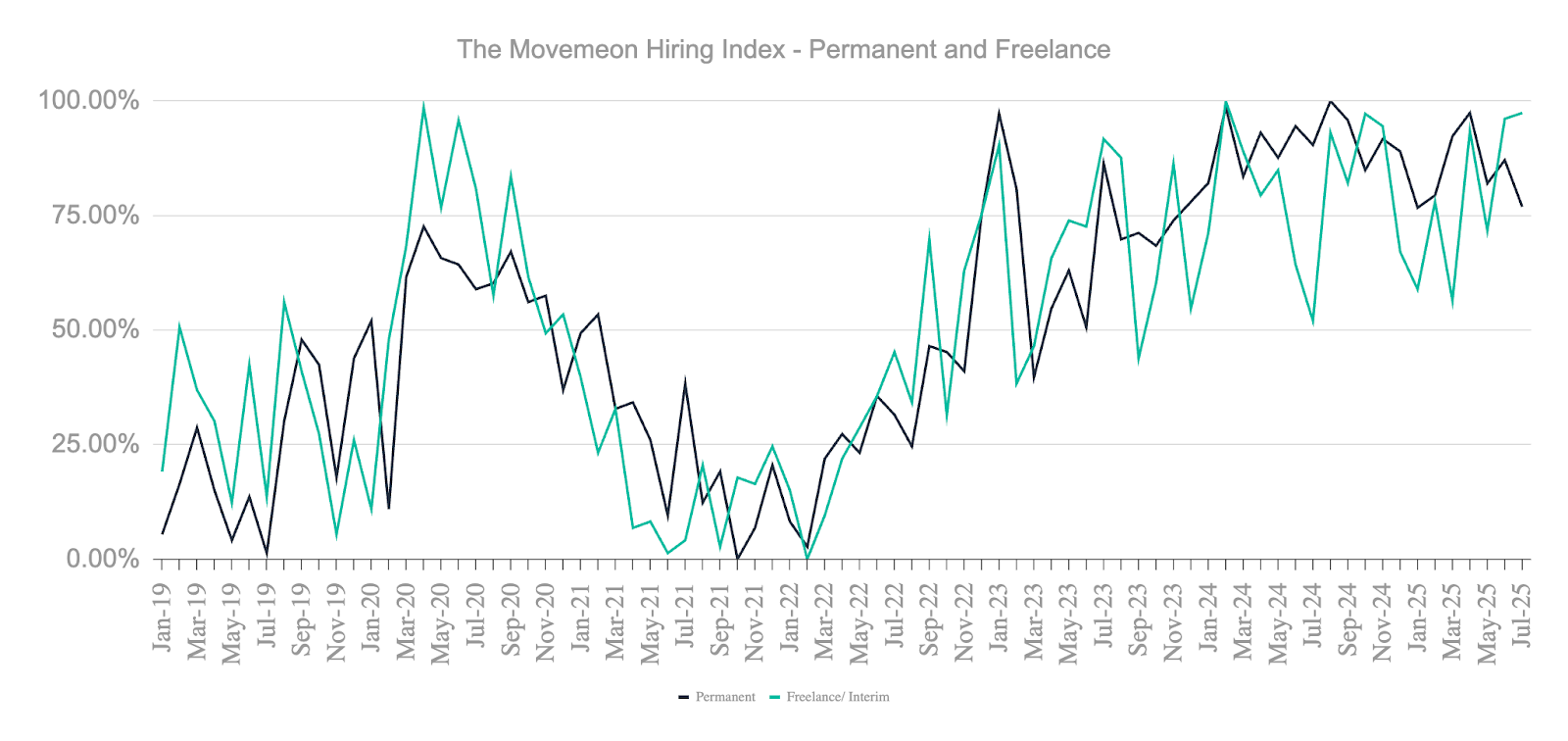



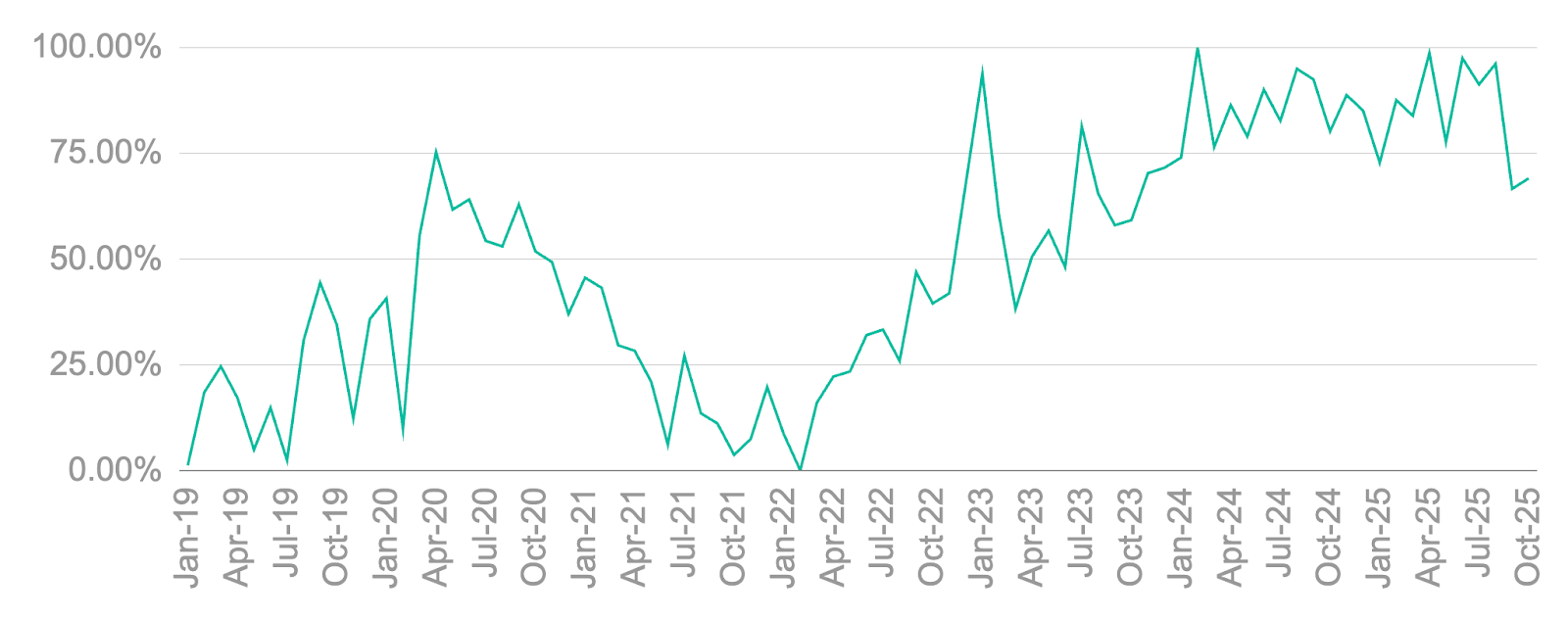
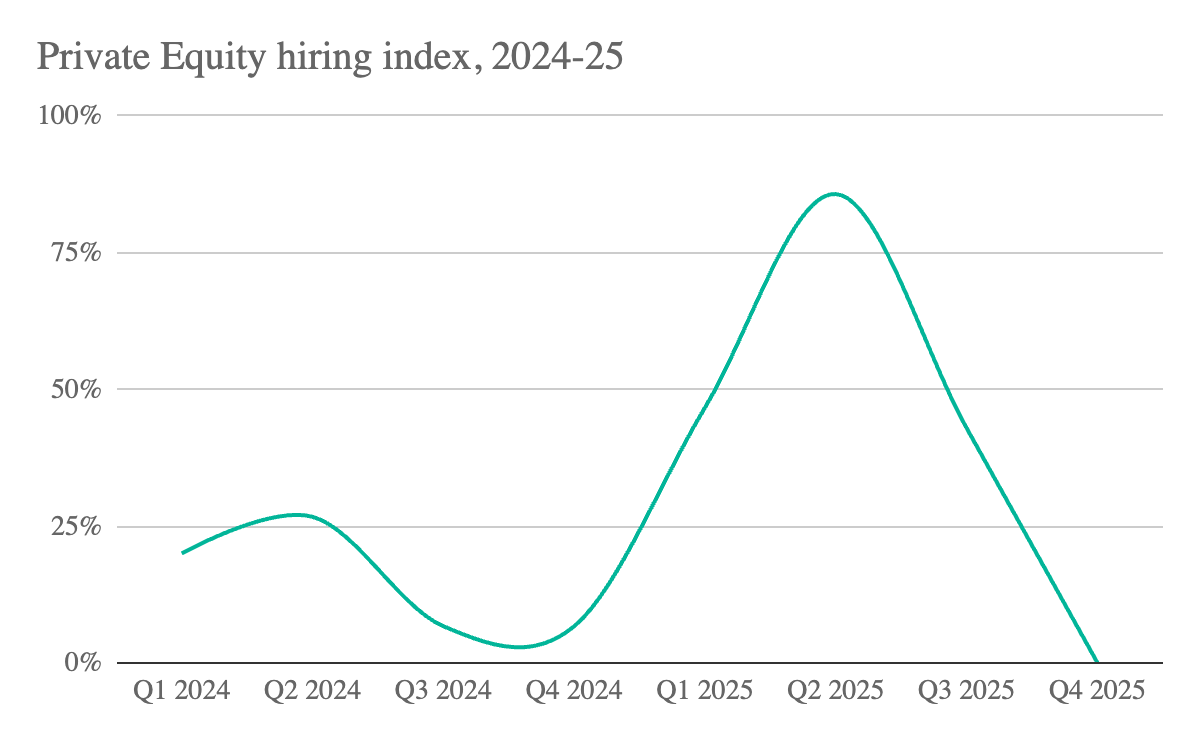
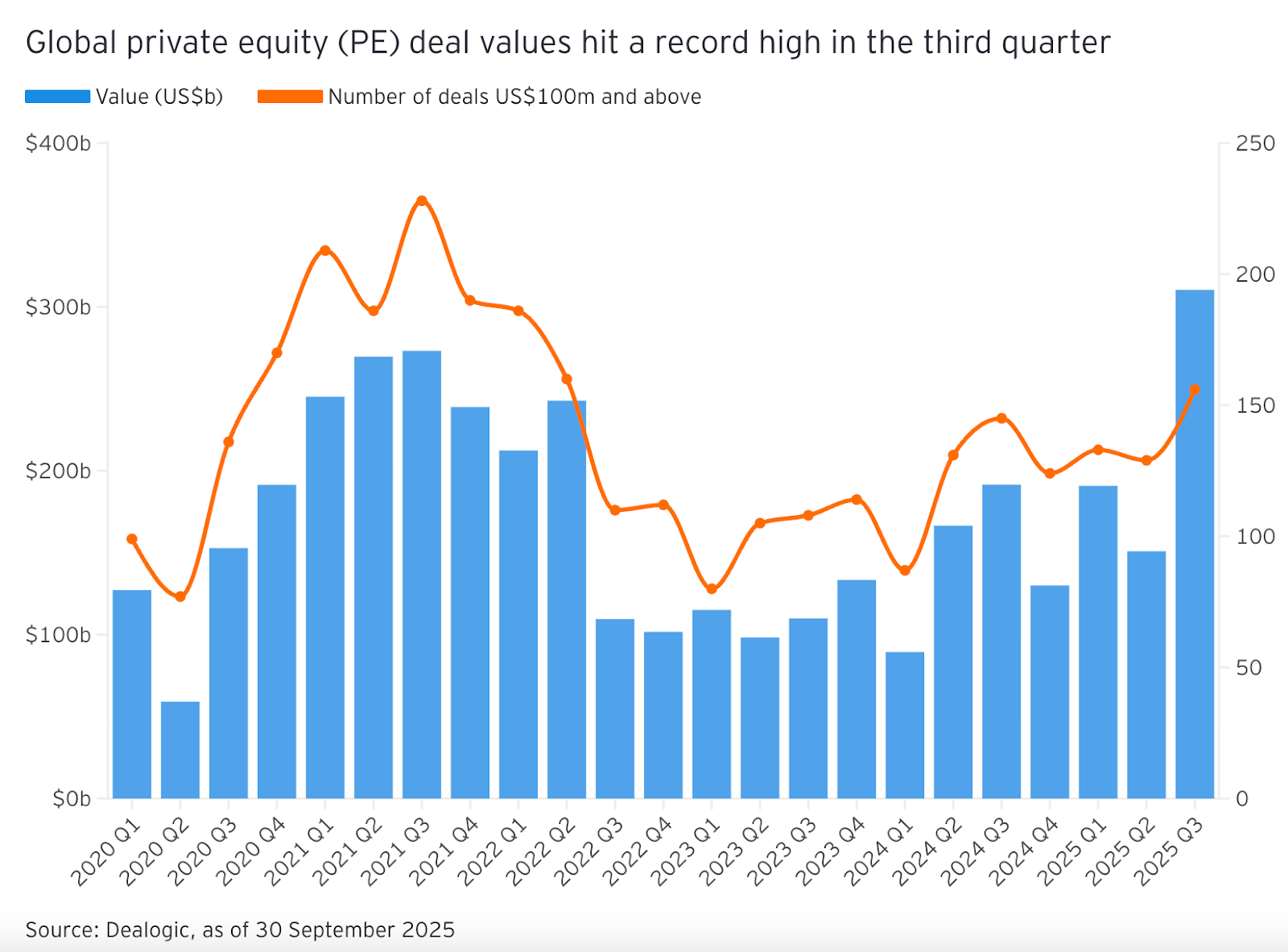
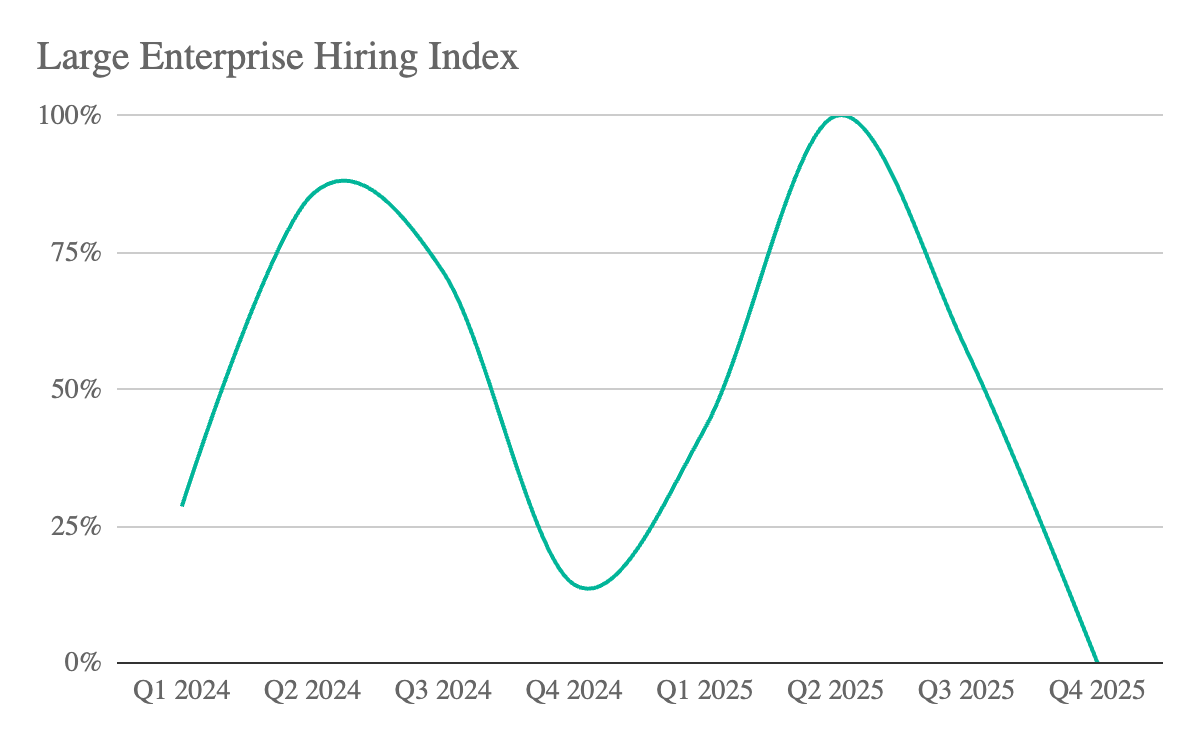
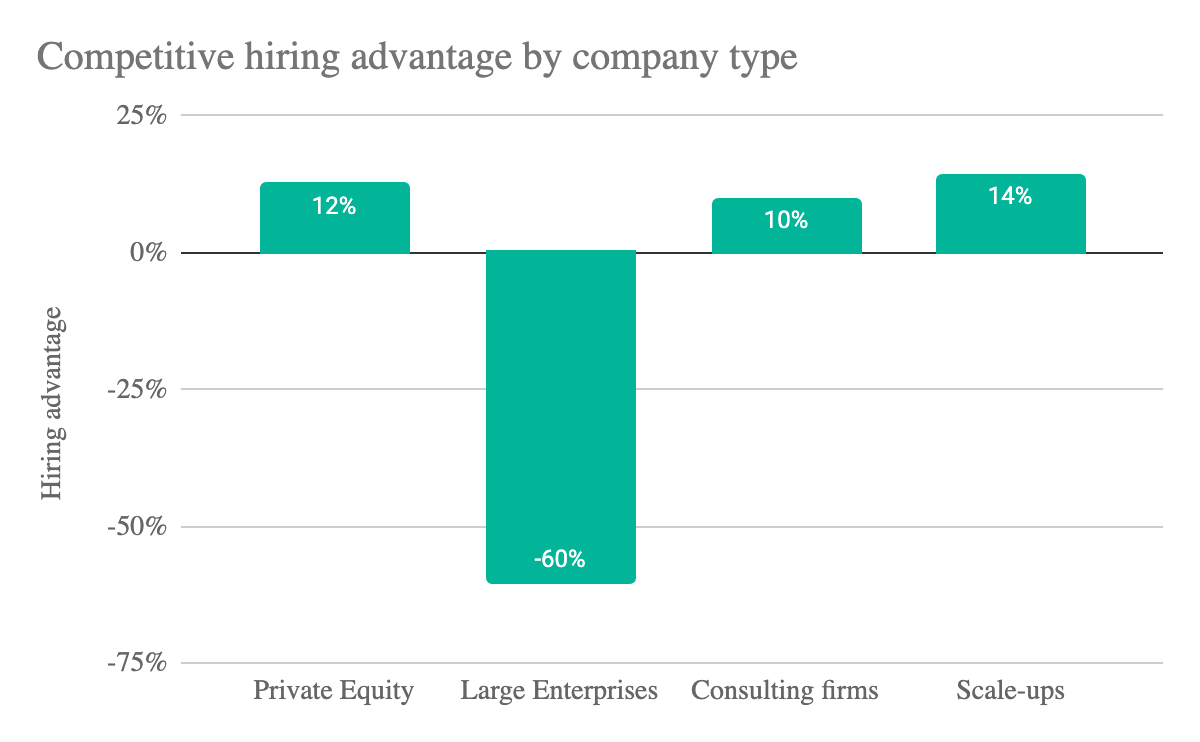
.jpg)

.png)
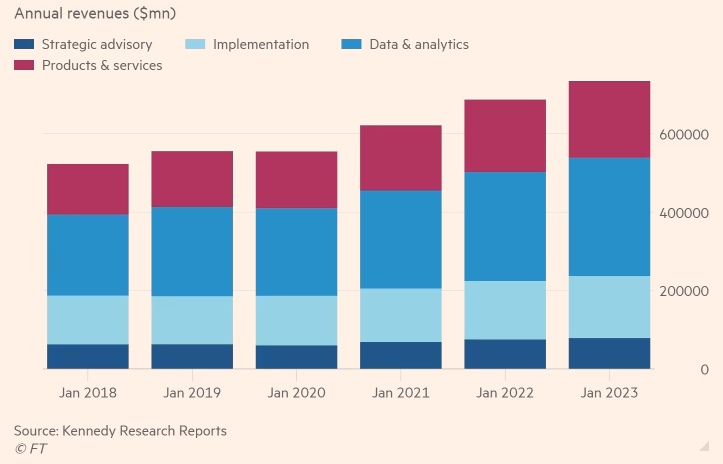
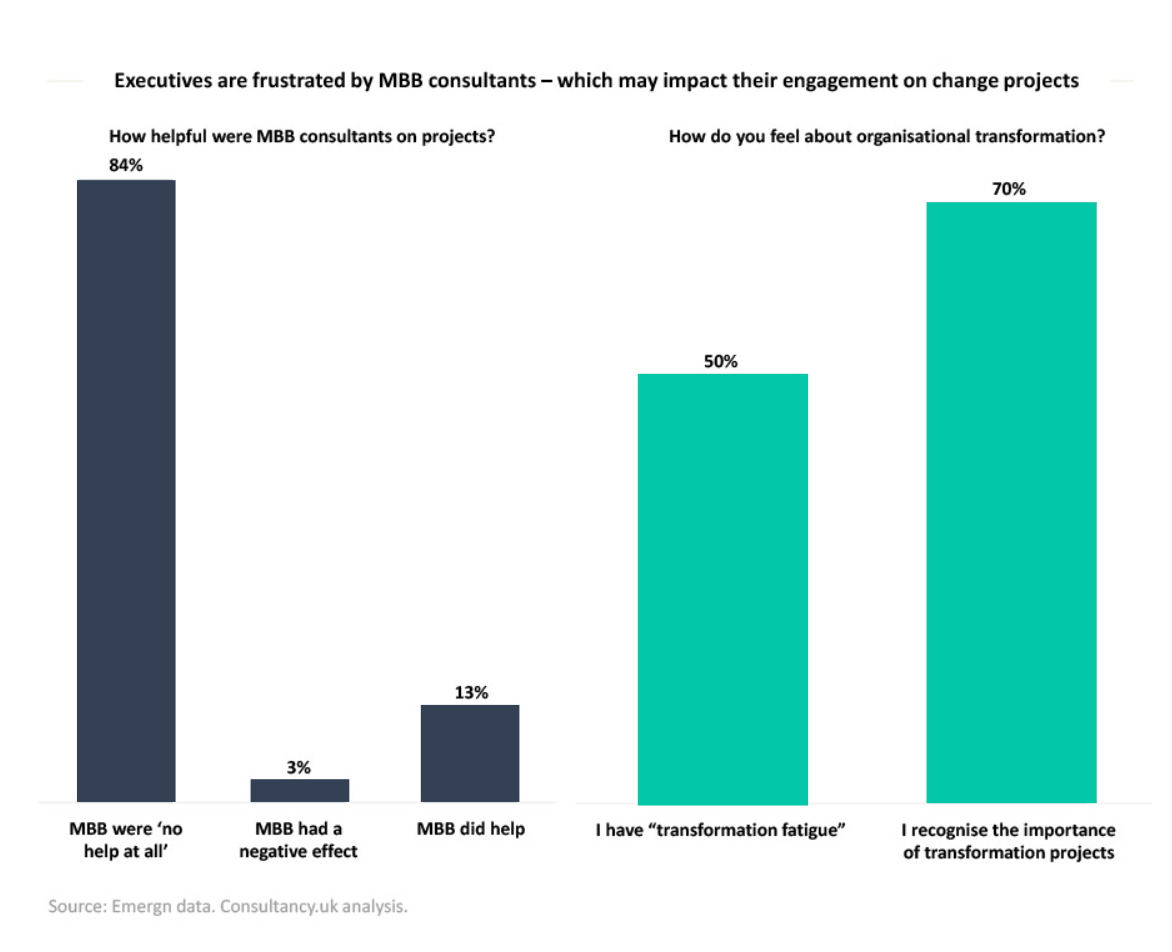
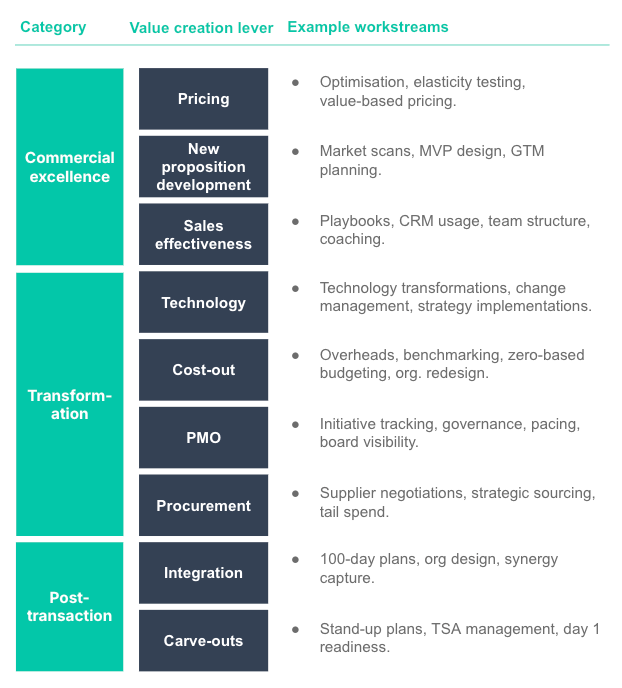

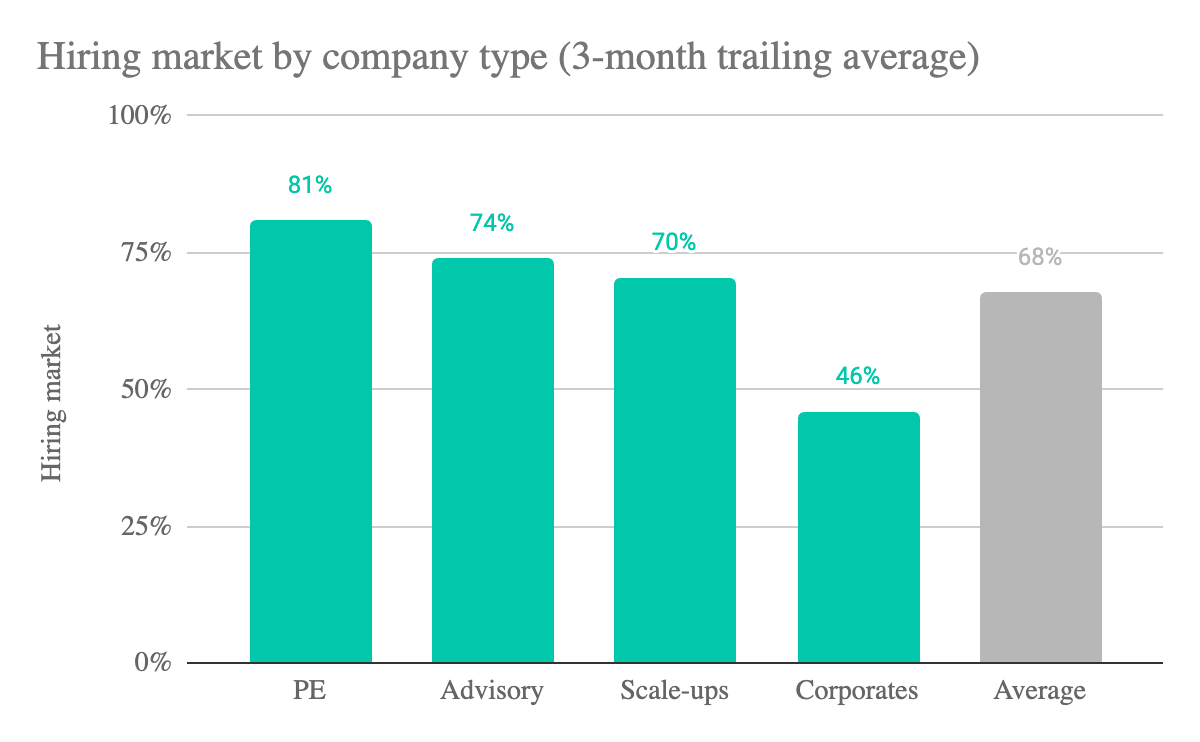
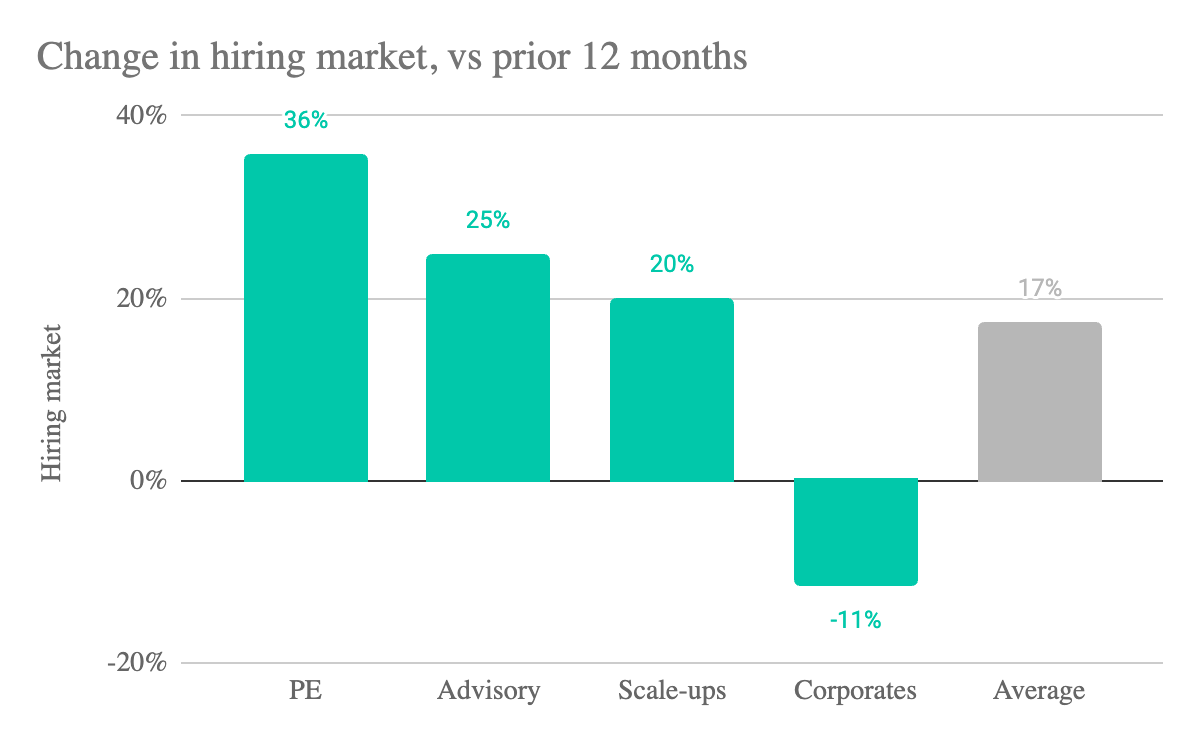


.jpg)
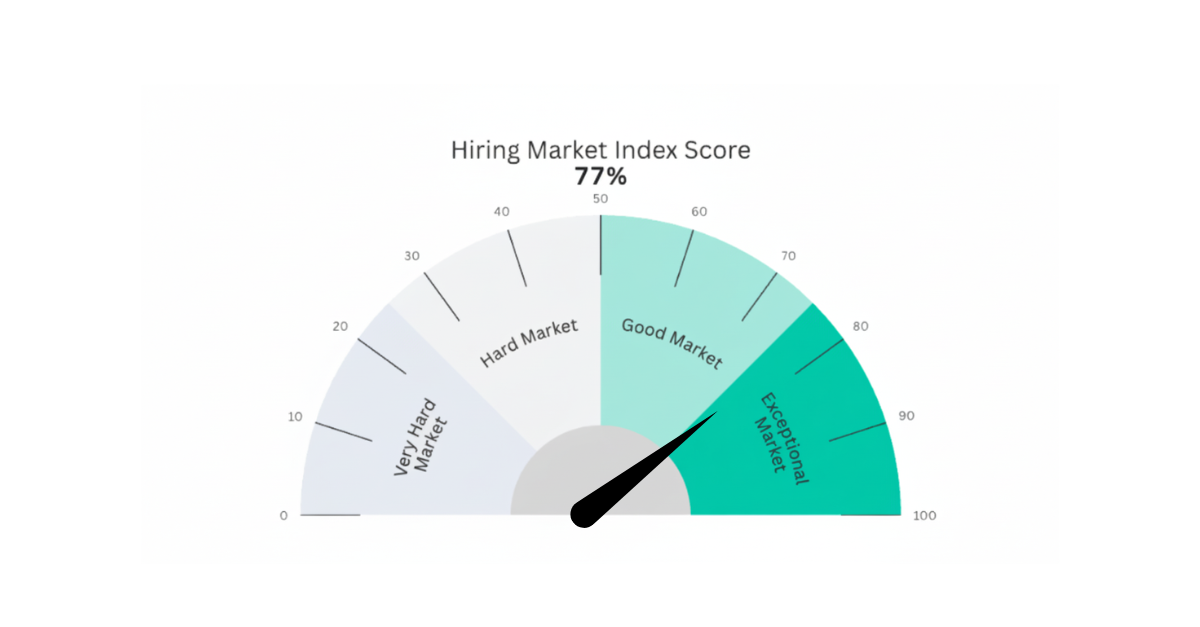
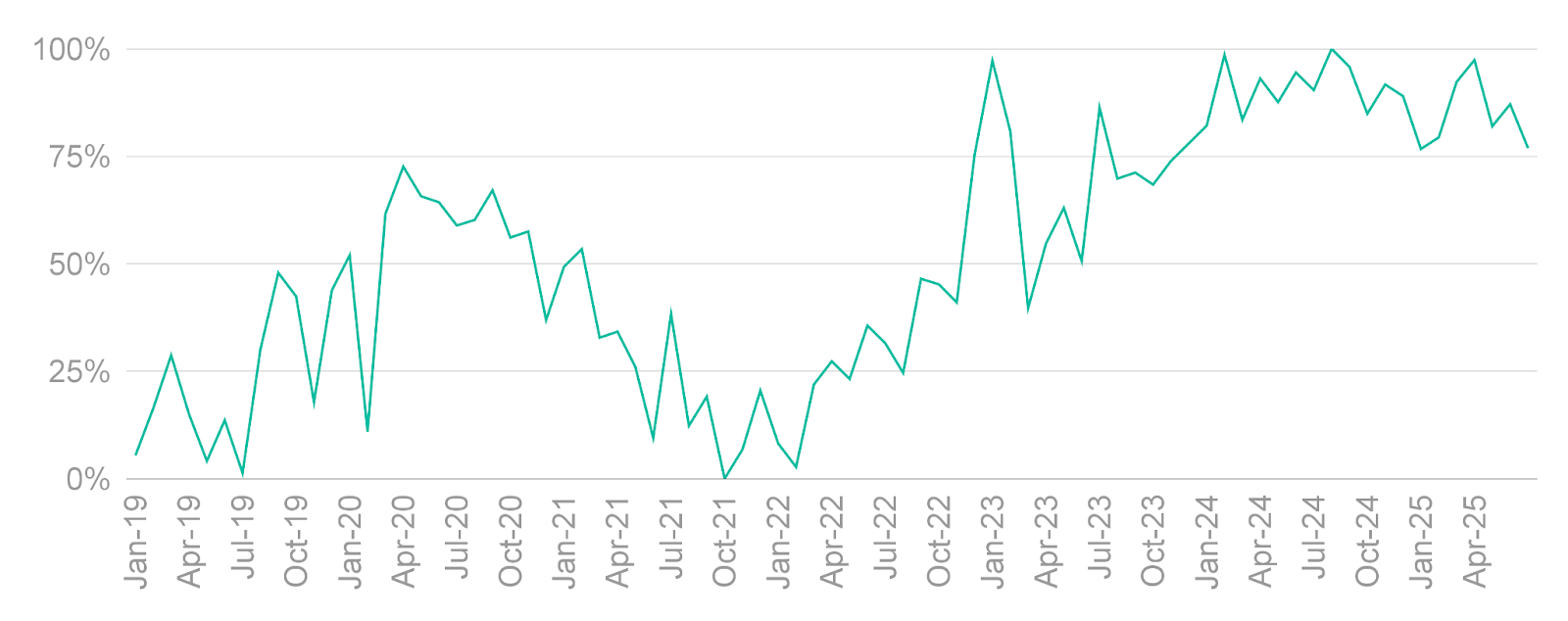
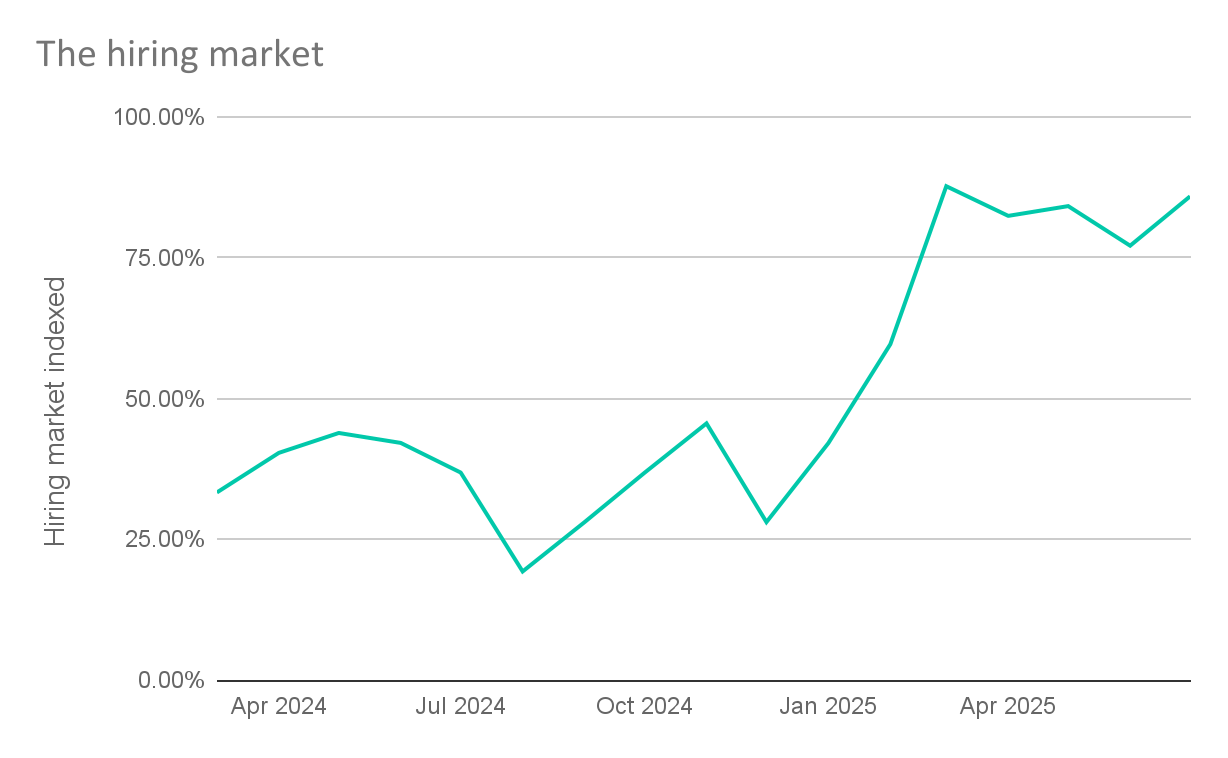



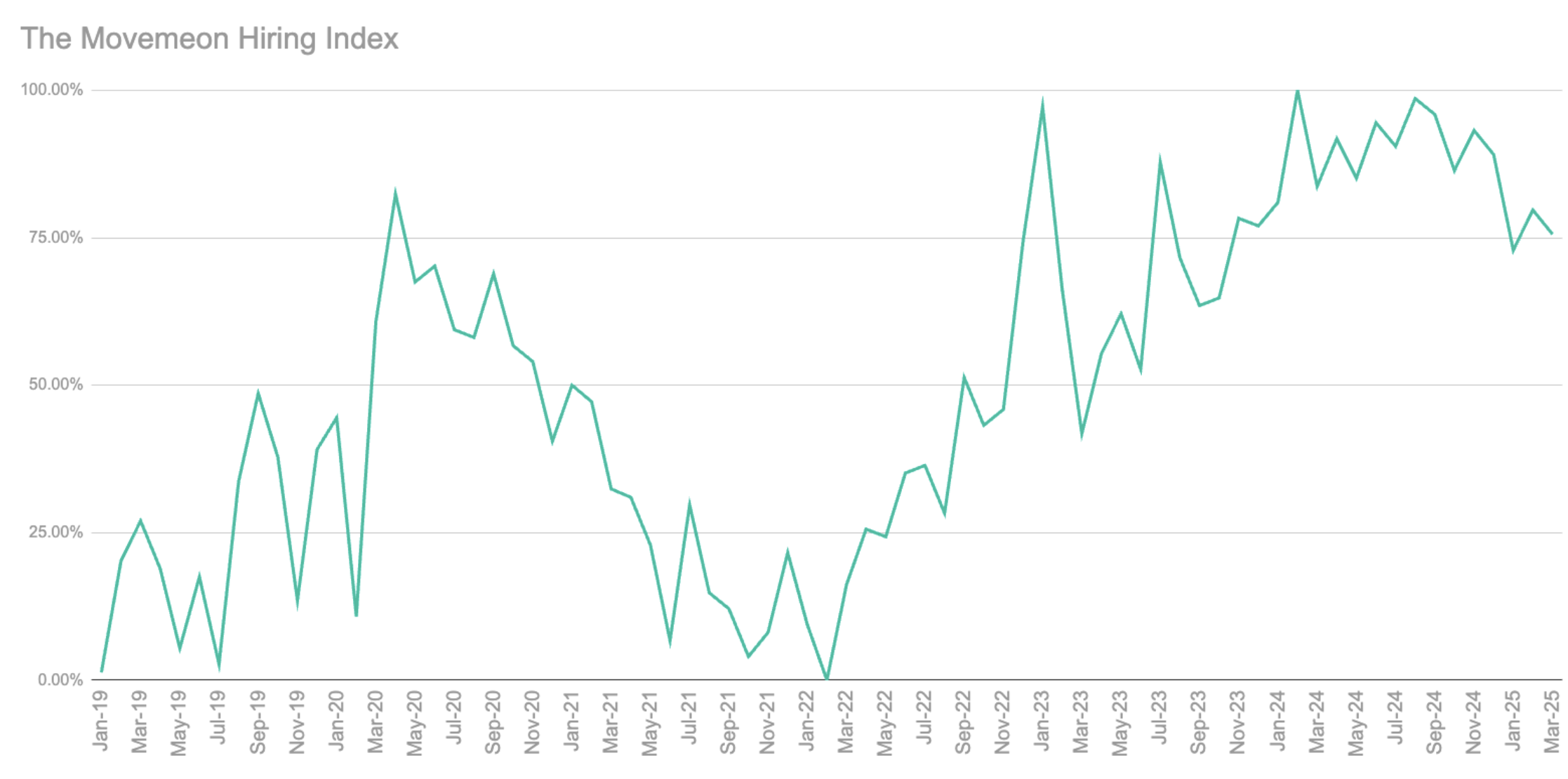



















.jpg)

